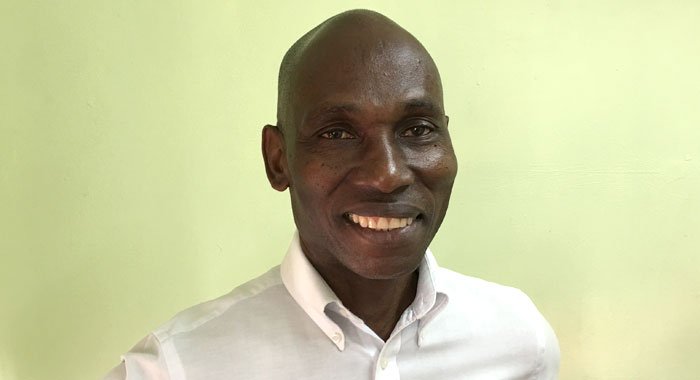
BY Jomo Thomas
‘There are decades when nothing happens; and there are weeks when decades happen.’ ~ Vladimir Ilyich Lenin, leader of the 1917 Russian Revolution.
The week that was may go down in the annals of Vincentian intellectual thought as the one that decisively took issues of national development away from the narrow corridors of political gamesmanship into the realm of profound reflections and debate, from the “renk” mouths of politicians, to cerebral reflections of the best and brightest in St Vincent and the Grenadines. We must thank Dr. Jason Haynes, Luke Browne, Mikhail Charles and Guevara Leacock for this giant leap.
Plain Talk has long argued that our homeland is an intellectual desert. In the last few days, a fertile oasis of intellectual thought has sprung up that augurs well for the development of St Vincent and the Grenadines.
The reasoned voices of the men mentioned above represent a frightening development for PM Gonsalves, who had had a virtual stranglehold on the narrative and discourse of all things of substance for many decades, particularly the period during which he sits at the helm as ruler of the land. His influence has been slipping, but recent indications are that we are rapidly approaching the end of an era. It ought to have come sooner. SVG could have been better with fresher ideas and fewer developmental headaches. But better now than never.
As national elections approach, the Citizenship by Investment (CBI), long heralded by the opposition New Democratic Party as a key ingredient in its toolkit for economic revival and development, has again taken centre stage.
Detecting a shift in the national mood, spurred on by the pressing economic difficulties and depressing social malaise gripping the land, Gonsalves has doubled down on his opposition to CBI. He took a calculated risk attempting to regain the initiative on our country’s development prospects. He went rogue and vulgar and, in the process, won the ire of Antigua’s Gaston Browne, who accused him of toadying up to the very forces that have conspired to retard our economic prospects.
Gonsalves labelled the CBI programmes across the region as mismanaged, corrupt, and destined to run afoul of the big boys in Europe and America. Gaston Browne would have none of it. He rejected Gonsalves’ broad-brush condemnation as a parroting of the views of the developed countries. He mused, ‘I don’t know why Ralph believes that the CIP countries will lose visa-free access, and that St. Vincent and the Grenadines will be able to retain visa-free access. We’re operating within the same space, and as I said before, the same stick that beats the wild goat is the same one that going beat the tame.’
Gonsalves’ feeble retort is that he is not in solidarity with Antigua, Dominica, Grenada, St Lucia and St Kitts in their quest to sell passports. Gonsalves described as ‘twisted logic’ those who insist that our country should ‘sell as many [passports]as I can, as fast as I can.’
Dr. Jason Haynes first addressed the role of CBI in national development. Given the difficult economic situation, he argued that SVG should reconsider implementing CBI. He posits that a well-regulated CBI programme could generate millions of dollars to ease the strain and lessen our economic burden.
To add weight to his reasoning, he declared that ‘the economic disenfranchisement we face today is a direct consequence of colonial exploitation. Yet, instead of supporting our efforts to build economic resilience, European nations threaten punitive measures against innovative development strategies like CBI programmes…
Ultimately, citizenship is a quintessential expression of national sovereignty. As Caribbean nations would not presume to dictate EU citizenship criteria, European nations should not determine ours. This is especially true given the absence of reparatory justice for the historical injustices that created our current economic vulnerabilities in the first place.’
Within hours of Dr. Haynes’ piece, Luke Browne, the ULP academic and politician, offered a sharp rebuttal. He said, ‘SVG has had the second highest economic growth rate in Latin America and the Caribbean (after Guyana) without CBI. We must not behave as if CBI is the only way to the Promised Land. We have been successfully putting in place the national infrastructure for a 21st-century economy, and it is paying rich dividends.’
Luke concluded his argument against CBI with the following reasons –
i. it would offend the principle of citizenship based on a genuine connection between a person and a country;
ii. there are viable alternatives to it, as borne out by the case of St. Vincent and the Grenadines;
iii. we already have existing pathways to citizenship for investors who develop a genuine connection to this country; and
iv. the programme is fraught with risks and challenges.
Mikhail Charles reasoned that ‘Browne’s rhetorical framing deserves scrutiny. His invocation of SVG’s relatively strong growth post-pandemic omits key facts: that external grants, remittances, and unsustainable debt aided this growth. His argument that SVG doesn’t need CBI, then, is at best incomplete and at worst misleading.’
He correctly maintains that while Luke’s concern that SVG would become a haven for tax dodgers and shadowy businessmen is legitimate, these concerns can be addressed through robust due diligence and regional cooperation.’
He described Browne’s moral objections as earnest, but noted that they ‘risk romanticising a status quo in which citizenship can already be quietly sold without safeguards.’
On the other hand, he reasoned that although Haynes’ enthusiasm for CBI is economically rational, his prescription needs to be tethered to institutional discipline.’
Charles concluded by beseeching Vincentians not to fear discretion, but be wary of discretion without guidance. ‘A transparent citizenship policy, properly implemented, would allow the country to assert its sovereignty, enhance its credibility, and honour the genuine link that matters most: a commitment to its people’s long-term development.’
Guevara Leacock welcomed the ongoing debate and opined, ‘A well-tailored CBI programme, which contains, for example, real estate investment options, has and can stimulate construction sectors, creating employment opportunities and supporting ancillary industries. As new citizens, the influx of high-net-worth individuals can stimulate local economies through spending, business creation, and knowledge transfer. A well-crafted CBI programme can create the value-added economies we often hear about in political rhetoric.’
Confronting the challenges a CBI programme faces, Guevara says, ‘to ensure the long-term sustainability of these programmes, a country (SVG) must establish and maintain high standards of governance, transparency, and value proposition in an increasingly competitive market.’
All Vincentians should celebrate these young men for taking time from their busy schedules to educate us on the critical matter of policy options for national development.
Send comments, criticisms & suggestions to [email protected]
submit your comments




